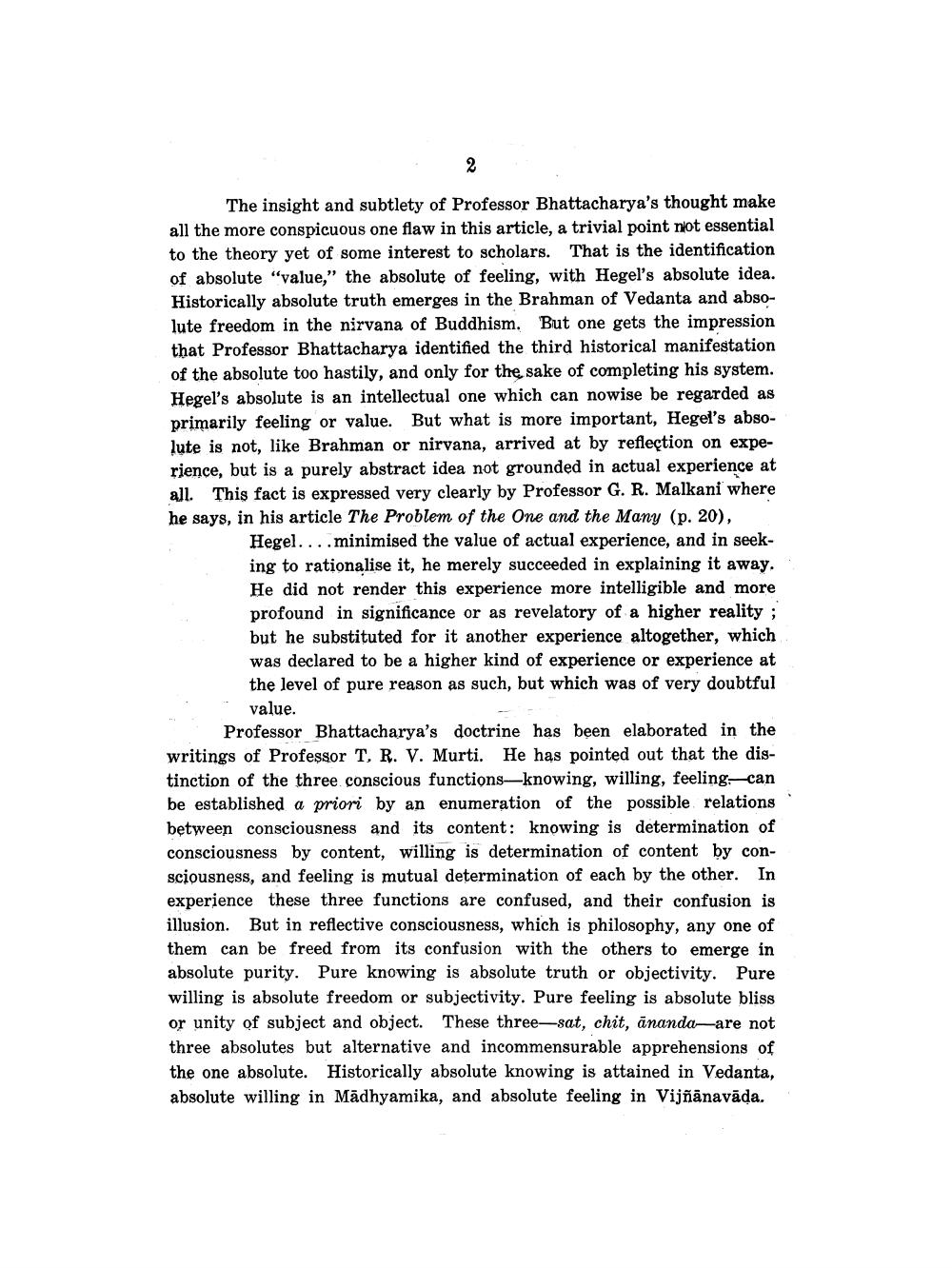Book Title: Absolute Feeling Author(s): Georg Burch Publisher: Georg Burch View full book textPage 2
________________ 2 The insight and subtlety of Professor Bhattacharya's thought make all the more conspicuous one flaw in this article, a trivial point not essential to the theory yet of some interest to scholars. That is the identification of absolute "value," the absolute of feeling, with Hegel's absolute idea. Historically absolute truth emerges in the Brahman of Vedanta and absolute freedom in the nirvana of Buddhism. But one gets the impression that Professor Bhattacharya identified the third historical manifestation of the absolute too hastily, and only for the sake of completing his system. Hegel's absolute is an intellectual one which can nowise be regarded as primarily feeling or value. But what is more important, Hegel's absolute is not, like Brahman or nirvana, arrived at by reflection on experience, but is a purely abstract idea not grounded in actual experience at all. This fact is expressed very clearly by Professor G. R. Malkani where he says, in his article The Problem of the one and the Many (p. 20), Hegel....minimised the value of actual experience, and in seeking to rationalise it, he merely succeeded in explaining it away. He did not render this experience more intelligible and more profound in significance or as revelatory of a higher reality ; but he substituted for it another experience altogether, which was declared to be a higher kind of experience or experience at the level of pure reason as such, but which was of very doubtful value. Professor Bhattacharya's doctrine has been elaborated in the writings of Professor T, R. V. Murti. He has pointed out that the distinction of the three conscious functions—knowing, willing, feeling-can be established a priori by an enumeration of the possible relations between consciousness and its content: knowing is determination of consciousness by content, willing is determination of content by consciousness, and feeling is mutual determination of each by the other. In experience these three functions are confused, and their confusion is illusion. But in reflective consciousness, which is philosophy, any one of them can be freed from its confusion with the others to emerge in absolute purity. Pure knowing is absolute truth or objectivity. Pure willing is absolute freedom or subjectivity. Pure feeling is absolute bliss or unity of subject and object. These three-sat, chit, ananda-are not three absolutes but alternative and incommensurable apprehensions of the one absolute. Historically absolute knowing is attained in Vedanta, absolute willing in Mādhyamika, and absolute feeling in Vijñānavāda.Page Navigation
1 2 3 4 5 6
